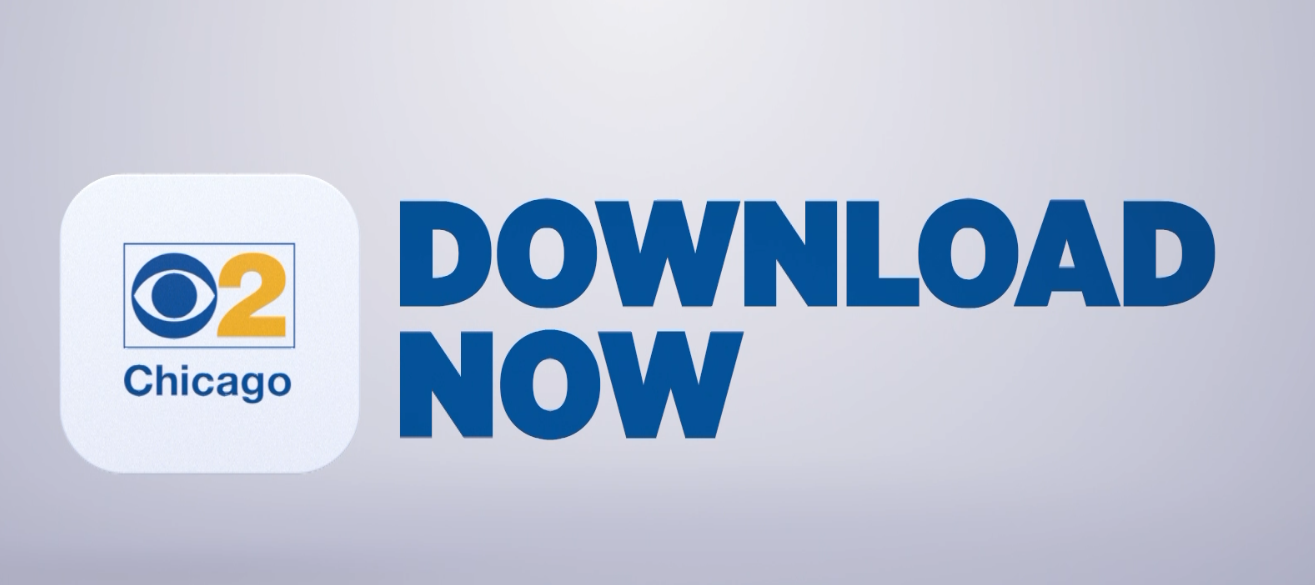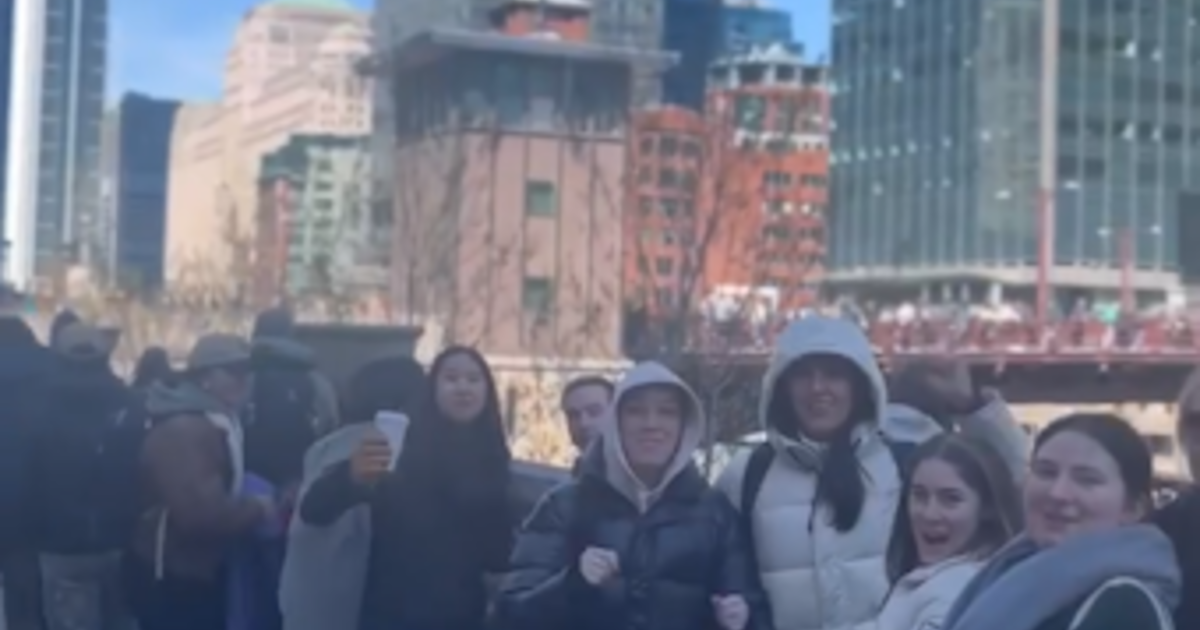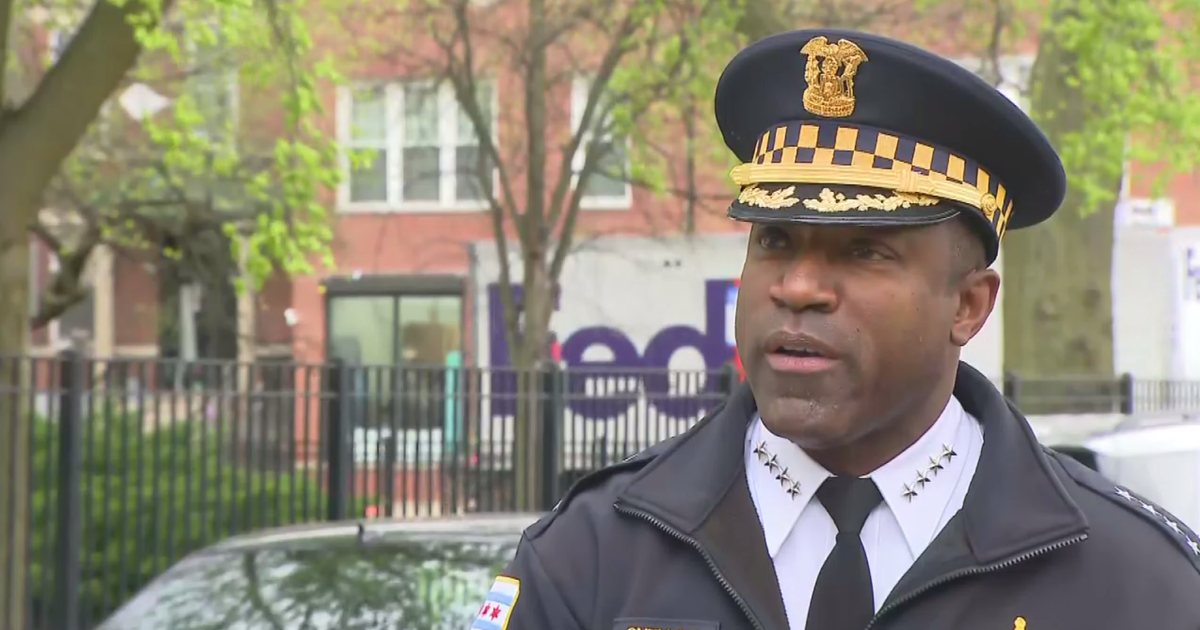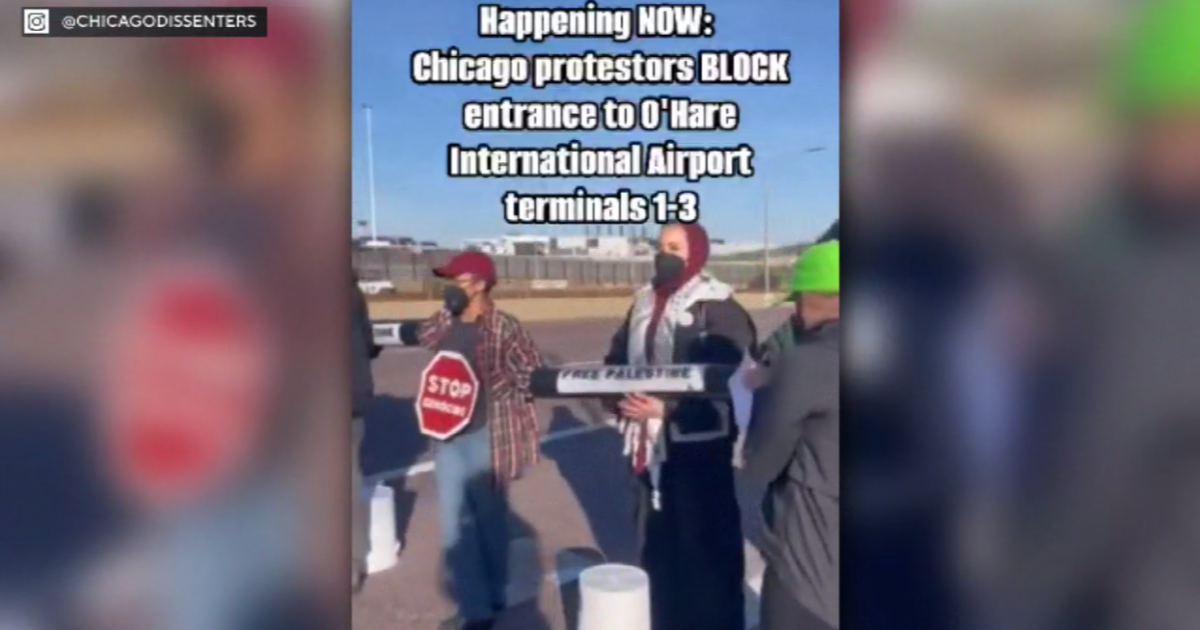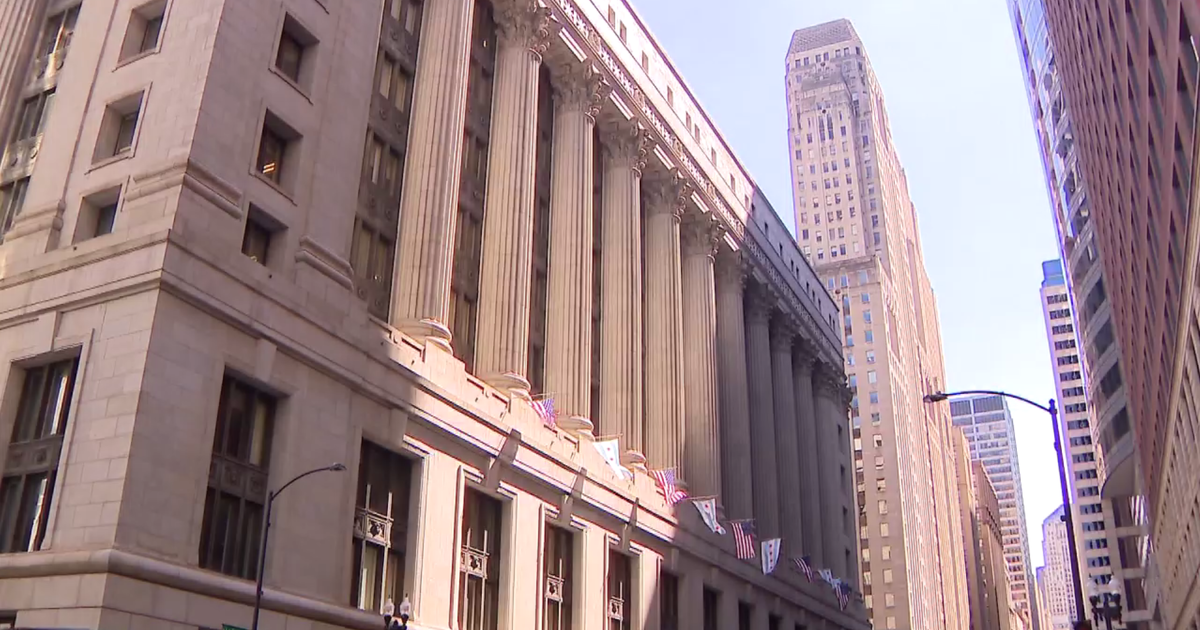Mayor Lightfoot Addresses Violent Protest, Looting, And COVID-19 In Chicago On 'Face The Nation'
CHICAGO (CBS) -- On CBS' "Face the Nation" Sunday, Mayor Lori Lightfoot addressed concerns about the protest that turned violent downtown the night before, the looting a week ago, and the spread of the coronavirus.
On Saturday, police Supt. David Brown said multiple agitators "hijacked a peaceful protest," which snaked from Michigan Avenue and Wacker Drive southwest to Adams and LaSalle streets before dark on Saturday evening. At least 17 officers were injured and 24 people were arrested – four of them on felony charges.
Speaking to "Face the Nation" moderator Margaret Brennan, Mayor Lightfoot said the violence during the protests on Sunday was not a "planned attack" like the looting early last Monday morning from the Loop to the Magnificent Mile, Streeterville, River North, and Lincoln Park. But she said people did show up to the protest looking for a fight.
"What we've seen in cities all across the country, not just Chicago, is a continuing wave of protests. The vast majority of these have been peaceful. But what we've also seen is people who have embedded themselves in these seemingly peaceful protests and come for a fight," the mayor said. "So what happened yesterday was really over very fairly quickly because our police department is resolved to make sure that we protect peaceful protests. But we are absolutely not going to tolerate people who come to these protests looking for a fight and are intending to injure our police officers and injure innocent people who just come to be able to express their First Amendment rights."
As to the looting last Monday morning, Mayor Lightfoot said previously that it was a planned attack and not a spontaneous reaction to the police shooting that wounded Latrell Allen, 20, on Sunday afternoon in Englewood. The mayor reiterated that point to Brennan.
"It's not spontaneous when you bring U-Haul trucks, cargo vans and high end robbery tools," Lightfoot said.
As to who planned it, Mayor Lightfoot said the city is working with its federal partners "to identify exactly who the ringleaders are."
"We obviously made one hundred plus arrests that night," Mayor Lightfoot said. "We're actively pursuing cases against others, but we are determined to make sure that we get to the bottom of this and bring those responsible for this organized crime effort to justice."
TRANSCRIPT: Mayor Lori Lightfoot On "Face the Nation," August 16, 2020
Brennan also asked the mayor about concerns that Chicago could become a hot spot for COVID-19 due to high transmission rates and inadequate social distancing.
Last week, the Children's Hospital of Philadelphia Policy Lab, which studies regional spikes, expressed tremendous concern for large Midwestern cities like Chicago and Milwaukee this fall when it comes to COVID-19.
"Newly infected individuals from summer vacations is concentrating risk in their urban neighborhoods. We would not be surprised to see vacation areas ebb while city epidemics continue to grow," they wrote.
The policy lab expects infection rates to grow among 18- to 29-year-olds.
Brennan asked Lightfoot if she was concerned that mass gatherings such as protests will make that problem worse.
"Well, interestingly, we didn't see that rise when we saw a lot of mass gatherings in late May, early June, but yes, of course we're concerned. If you look across the country, virtually every state has been blowing up with new COVID cases. And while a number of those states we're seeing a slight decline in the cases, there's still at such a high level that, that's a problem. And as people travel from one jurisdiction to the next, then that presents challenges for other jurisdictions," the mayor said.
Mayor Lightfoot noted that Chicago has been seeing a steady increase in COVID-19 cases lately, and indeed it is being driven by 18- to 29-year-olds.
"We've just got to break through to young people that they are not immune to this virus. And we're continuing to see an increase in the Latinx community, which we are actively engaged with our partners on the ground there to do more work, more intervention to bring those rates down," Mayor Lightfoot said.
Nearly two weeks ago, Chicago Public Schools officials ditched plans to have some students in classrooms to start the school year, and announced a fully remote learning plan for the fall amid rising coronavirus cases. CPS Chief Executive Officer Janice Jackson and Mayor Lori Lightfoot announced Tuesday morning that all students would be learning remotely for at least the first quarter of the 2020-21 school year, which begins Sept. 8.
Brennan asked Mayor Lightfoot how the city will determine when it is safe for kids to return to the classroom.
"Thinking about the schools is a complex problem, one, it's not just the students themselves, it's the entire ecosystem of a school. So you've got teachers, you've got principals and you've got staff. Looking at Chicago, we have a number of teachers and support staff who are over 60. We know that those are still vulnerable population. We have a number of people that work in the school system who have underlying medical conditions. Comorbidity is still a real issue. So thinking about the schools is a very complicated endeavor," the mayor said. "And we want to make sure that we provide the safest environment for our young people to learn."
Thus, for now, all learning will be remote at CPS. Mayor Lightfoot noted that the city is offering a program to connect 100,000 homes with wi-fi and broadband for free to facilitate the effort.
Earlier on "Face the Nation" Sunday, White House Senior Adviser Jared Kushner said the federal government was providing states with "all the resources they need in order to take a tailored strategy, given the data that they see on the ground." Mayor Lightfoot said the federal government had not actually been so helpful at all.
"Look, we're never going to get everything that we need from the federal government. If we waited for them, we'd be in dire straits. It would be great if there was not the chaos that we've seen at the federal government, the White House fighting the CDC, the HHS hijacking the reporting process. And still, we don't have a consistent testing regime. We still don't have a federal mask policy," the mayor said. "The chaos at the federal level has not been helpful to anyone, not Chicago, not Illinois, not states across the country."
Mayor Lightfoot is also a surrogate for Joe Biden's Democratic presidential campaign. Last week, Biden announced U.S. Sen. Kamala Harris (D-California) as his running mate.
Brennan asked Lightfoot if Harris' past record as a prosecutor – with which some progressives took issue when Harris was running in the Democratic primary herself – might be a liability in the general election campaign.
"I do not at all," Mayor Lightfoot said. "I mean look at – the proof is in the pudding, the level of enthusiasm that has come this week from the announcement that she would be the vice president. She really is, I think, inspiring a number of different constituencies. Of course women, of course the Indian and South Asian community and of course Black women in particular. The enthusiasm for this ticket is so high and people are excited in the midst of all of what's going on, the concerns, the anxiety, the fear, the anger. People need something to hold on to. They need hope. And that's what the Biden-Harris ticket really provides, steady leadership, leadership that is going to speak truth to power. And it's going to lead us through this difficult time. The contrast between Biden-Harris and Trump-Pence could not be more great."
